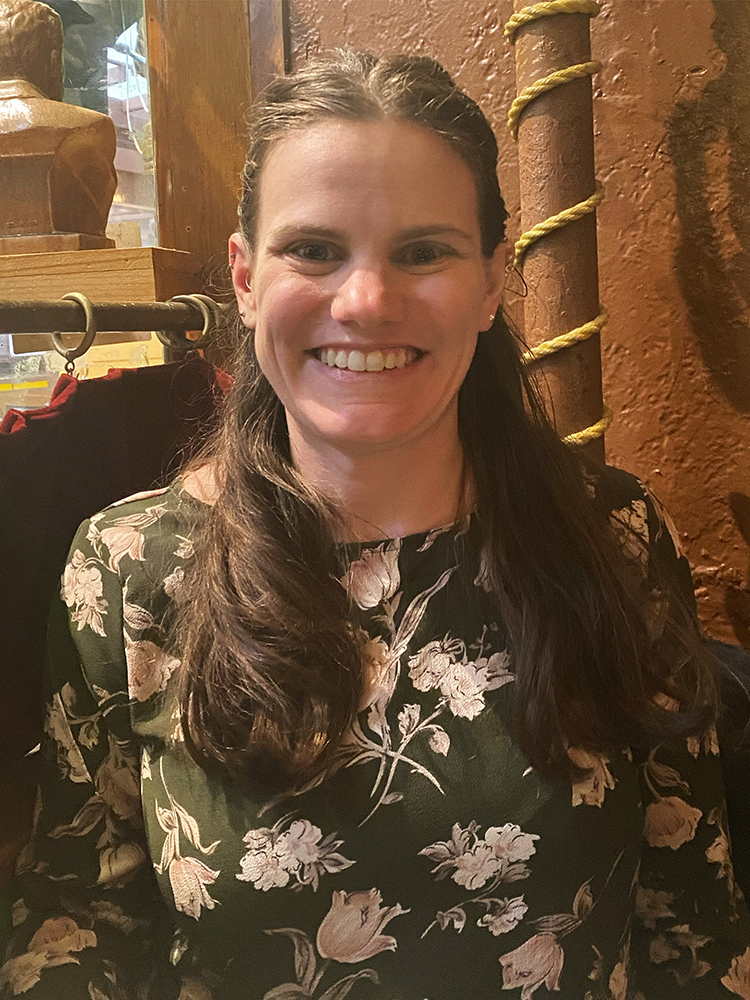I REMEMBER MY SURGEON TELLING ME, as we discussed surgery to treat my thyroid cancer, that I could maintain the vital functions of my thyroid and preserve my quality of life if I chose to remove only the half with the tumor in it. I was thankful to him for considering what I was looking for as an adolescent and young adult (AYA) cancer patient besides a cure. However, fast forward past the surgery to when I learned I had metastases. I would go on to have the other side of my thyroid removed, then radiation treatments and a third surgery four years later when the cancer failed to respond to radiation. Now it’s been five years since my first diagnosis, and I’m taking a little pill every day to do the work of the thyroid gland and keep me alive.

Photo courtesy of Carly Flumer
The three surgeries were outpatient, in-and-out procedures that were relatively easy to recover from. Radioactive iodine therapy wasn’t as intense as much as it was annoying. The treatments made me radioactive, which meant I couldn’t be within a certain distance of my family for about a week, with the distance between us slowly decreasing over time. I remember my parents leaving food outside my door for meals, flushing the toilet three times due to radiation leaving my body through my urine, and having to throw away the sheets of the makeshift bed set up for me because they were now tainted with radiation.
The most frustrating part of treatment, however, has been taking daily Synthroid (levothyroxine). Among other functions, the thyroid controls body temperature, metabolism, muscle and digestive function, and heart rate. When you’re left without one of the most important glands in your body and all of its functions are expected to be replaced by a pill, things are bound to go wrong, such as heart palpitations, irregular bowel movements, and muscle and joint pain.
Carly Flumer shares lessons she learned that helped her through treatment.
For patients who have been recently diagnosed with thyroid cancer, I offer these tips about treatment and how to manage:
- Have a good relationship with your endocrinologist, who will be treating you for life.
- Make sure your values, morals and opinions are respected as part of the treatment process. The cure isn’t the only part of the cancer journey.
- Ask about different treatment options and why they chose the one they recommend.
- Inquire about potential side effects of each treatment and strategies to manage them, especially if you undergo chemotherapy or radiation.
- Ask any and all questions at each appointment, including clarity on medical jargon, such as thyroid-specific blood tests.
It can take years for an oncologist or endocrinologist to find the correct dosage, all while you try to manage life on a daily basis. It’s absolutely the hardest experience I’ve had to go through as a young adult, and it has taught me there is no such thing as the “good” cancer, despite the many reassurances I heard from my care team. My quality of life would now be affected forever because of a small tumor that took my body hostage.
Share your story with Cancer Today. We’re looking for people who have or had cancer to share their perspectives and provide helpful tips to other readers. Send your 700-word essay to personalstories@aacr.org for a chance to have your story featured on the Cancer Today website.
Cancer Today magazine is free to cancer patients, survivors and caregivers who live in the U.S. Subscribe here to receive four issues per year.





